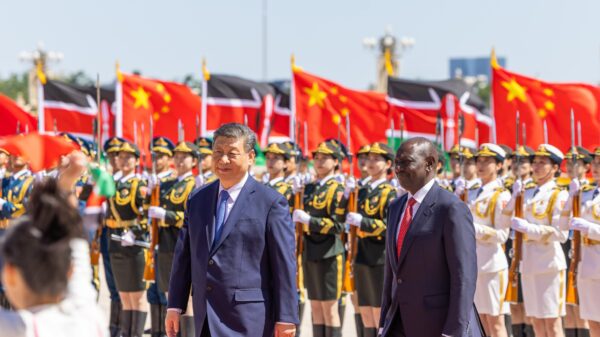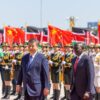In what has been hailed by scientists globally as China’s equivalent of the Nobel Prize, President Xi Jinping on Wednesday presented top awards to two Chinese scientists for their outstanding contributions to scientific and technological (sci-tech) innovations. In the Beijing event, aircraft designer Gu Songfen and nuclear expert Wang Dazhong received the award medals and certificates during the annual National Science and Technology Award Conference at the Great Hall of the People in Beijing.
For President Xi Jinping to attend the ceremony and hand over the prizes in-person shows the utter seriousness and importance China gives to these achievements. Both achievers are academicians who have dedicated almost all their lives to applying the knowledge gained in their respective sectors.
It may not appear that obvious, but aircraft safety in the last three decades has benefited immensely from Gu’s work in aerodynamic aircraft design. Wang’s work has revolved around research, design and construction of new nuclear energy fields and reactors. Of course, this has contributed immensely to the unsurpassed nuclear energy driven development in the country.
China’s sci-tech revolution has led to the evolution of the country’s economy from a “sweat-driven” to “innovation-driven” model. The economy has exited from high-speed growth to high-quality development that ensures world class standards more than pushing volumes for a longer bottom line.
The research outcomes of these two alpha scientists has definitely been felt around the world where the technologies are in use, both directly and indirectly. Both industry and consumers have been equal beneficiaries of these practical sci-tech innovations.
Moreover, Gu and Wang are an inspiration for millions of students both home and abroad. In addition to their success proving that sci-tech is pivotal to development, it has also shown that patience pays. The scientists have worked painstakingly for decades motivated simply by their contribution to human progress.
Indeed, China’s sci-tech game-changing innovations are not by happenstance, and even the cynics have been blown away. According to an article published on “Scientific American” by Leonid Solovyev on July 3, 2018, China’s funding for research and development (R&D) grew over a hundred fold from about U.S. Dollars three billion to over U.S. Dollars 400 billion in the past three decades.
Leonid notes that one of the major outcomes of this funding is the exponential increase in the number of citations of Chinese scientists in quality scientific publications globally. In 2017 this number came first before the U.S.’s in gross terms, with the former producing 17,000 more papers.
The government’s support for its scientists has reversed the drain of its best brains compared to the majority of developing countries. Almost all its science institutes are run by indigenous Chinese, which portrays a high level of patriotism for their motherland.
Let us look at the signs of the times of the country’s mind-boggling innovations. In October, China launched world’s fastest programmable quantum computers which, according to researchers, is one million times more powerful than Google’s Sycamore, its nearest competitor. The physicists say the light-based machine takes one millisecond to perform a task that would take a conventional computer 30 trillion years.
In another trailblazing research, a group of Chinese engineers based in three Chinese universities specialising in naval build-up, shipbuilding and aviation are developing tiltrotor helicopters for its aircraft carriers, a technology that is expected to contribute immensely in overcoming safety problems associated with take-off and landing of the aircraft. Published in the Journal of Aerospace Engineering, a scientific journal published by American Society of Civil Engineers, the scientists describe their work on an algorithm for safer aircraft landing procedures based on the homing instincts of pigeons.
Now, contrary to what cynics would have us believe, China’s extraordinary sci-tech milestones are not a selfish pursuit aimed at benefiting only itself or simply getting ahead. During his keynote speech via video link at the opening ceremony of the fourth China International Import Expo and the Hongqiao International Economic Forum on November 4, Xi noted that China would open up further by sharing its knowledge and domestic market.
A classic example of this promise is the waiving of intellectual property rights on vaccines for the global South. China is the first to cooperate with other developing countries – United Arab Emirates, Egypt, Indonesia and Brazil – in vaccine production, writing a new chapter of unity and self-reliance through capacity building.
Even though it is not their motivation, Chinese scientists will start emerging as Nobel peace nominees and winners in the near future as the world discovers and recognizes their life-changing work. There is no doubt that Chinese sci-tech has made a positive impact of no mean magnitude in the lives of billions of people globally. As the country opens up following Xi’s promise, it will unveil and deploy more of these revolutionary innovations.
The writer is the Executive Director of South-South Dialogues, a Nairobi based research and development communication think tank.















































